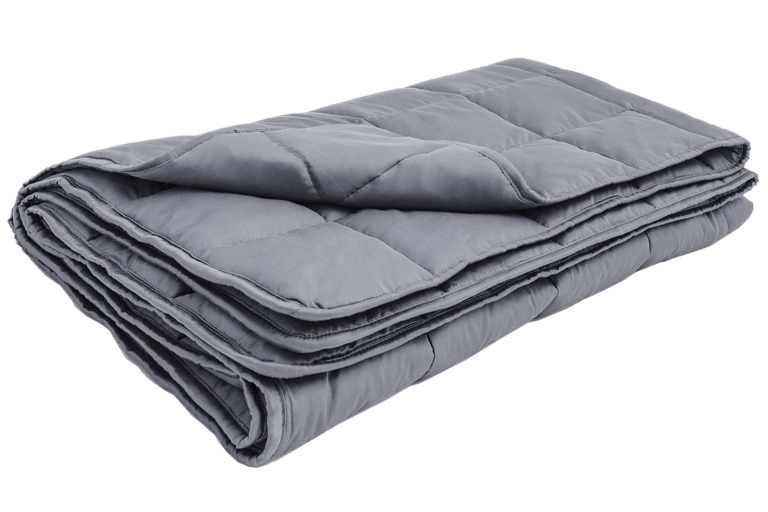Furniture
At Milwaukee Crisis Stabilization House CSH all furniture is designed to meet the unique needs of our clients with mental disorders, combining durability and safety with comfort and aesthetic.
Zero-Gravity Posture
Measurements recorded in orbit by NASA astronauts have shown, in its most unstressed and relaxed state, the human body assumes a trunk-to-thigh angle of 128 degrees. This zero-gravity posture was found to place the musculoskeletal system in its most rested condition. Specifically, this natural posture fosters a non-stressed muscle system, correctly aligned vertebrae, better breathing, improved digestion, and enhanced circulation.
Studies of astronauts floating in microgravity have yielded data useful in the design of chairs that relieve the body of back and leg pain, as well as muscle fatigue in the workplace.
Zero Gravity Recliners
Zero Gravity recliners position your body to make you feel weightless, stress-free and energized. This works by elevating your feet to be at the same level as your heart. When you achieve this position, you minimize the toll that gravity takes on your body every day. This includes reducing strain on your vertebrae, relieving back pain, improving circulation, and cushioning sore muscles.
Zero Gravity recliners have been known as stress relief chairs. Gravity puts your body under a tremendous amount of stress every day, wearing your muscles down over the years. Zero gravity chairs help you offset these effects and feel what it is like to be stress-free.
At Milwaukee Crisis Stabilization House CSH, each client room is equipped with the SVAGO ZGR PLUS ZERO GRAVITY RECLINER, with the following features:
-
- Vibration Massage
- Heat Therapy
- Hand-held Remote
- Memory Foam Pillows
More information about this recliner can be found here: Zero Gravity Recliner
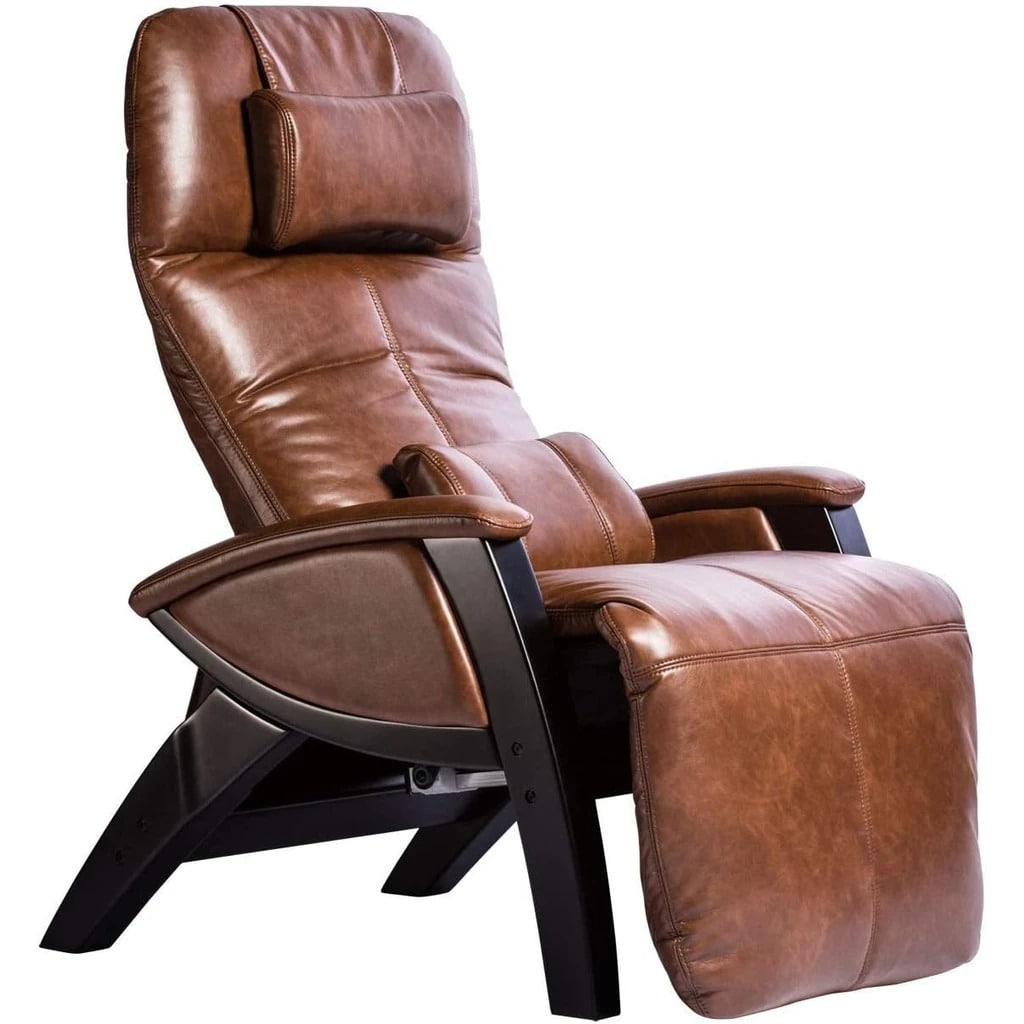
Bed Frame –
According to The Sleep Foundation, sufficient sleep facilitates the brain’s processing of emotional information. During sleep, the brain works to evaluate and remember thoughts and memories, and a lack of sleep is especially harmful to the consolidation of positive emotional content. This can influence mood and emotional reactivity and is tied to mental health disorders and their severity, including the risk of suicidal ideas or behaviors.
-
- Poor sleep worsens depression. Many people with depression also suffer from excessive daytime sleepiness and hypersomnia, which is sleeping too much.
- Anxiety disorders have a strong association with sleeping problems. Worry and fear contribute to a state of hyperarousal in which the mind is racing.
- Research has found that many people with bipolar disorder experience changes in their sleep patterns before the onset of an episode. There is also evidence that sleeping problems induce or worsen manic and depressive periods
- People with schizophrenia are more likely to experience insomnia and circadian rhythm disorders.
- Sleeping problems are common in people with Attention-deficit/hyperactivity disorder (ADHD). They may have difficulty falling asleep, frequent awakenings, and excessive daytime sleepiness.
“Mental Health and Sleep”, The Sleep Foundation, accessed 3.28.2021 from
https://www.sleepfoundation.org/mental-health.
At Milwaukee Crisis Stabilization House CSH, all our client rooms are equipped with The Thuma Bed – a well-designed, sturdy, platform bed frame that puts minimalism and quality craftsmanship at the forefront. By using traditional Japanese joinery, the bed is easy to put together, extremely solid while in use and adds a clean, de-cluttered look to the room.
More information about this bed can be found here: https://sleepauthorities.com/thuma-bed-review/.
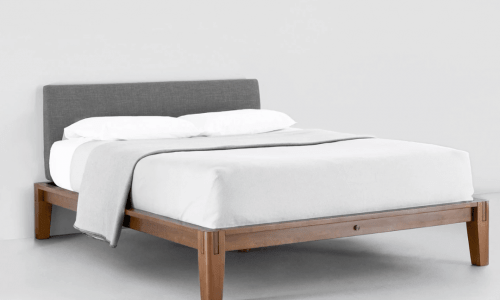
Mattress –
One spends about a third of every day in bed. Whether that time is spent blissfully slumbering — or tossing and turning — depends a lot on one’s mattress. According to WebMD:
“A mattress can impact a person’s sleep,” says Michael Decker, PhD, RN, associate professor at Georgia State University and spokesman for the American Academy of Sleep Medicine.
One way that your mattress affects your sleep has to do with the network of fine blood vessels, called capillaries, that runs underneath your skin.
“When you lie on any part of your body for an extended period of time, the weight of it reduces the flow of blood through those blood vessels, which deprives the skin of oxygen and nutrients,” Decker says. This causes nerve cells and pain sensors in your skin to send a message to your brain for you to roll over. Rolling over restores blood flow to the area, but it also briefly interrupts your sleep.
Ideally, a mattress that reduces the pressure points on your body should give you a better night’s sleep, Decker says.
Stephanie Watson, “The Best Mattress for a Better Night’s Sleep”, WebMD – Accessed 3.28.2021 from https://www.webmd.com/sleep-disorders/features/best-mattress-good-nights-sleep
At Milwaukee Crisis Stabilization House CSH, all our bed frames are topped with the all-foam firm Loom & Leaf mattress, one of the top seven mattresses recommended by The Sleep Foundation.
More information about this mattress can be found here: https://www.sleepfoundation.org/best-mattress/best-luxury-mattress.
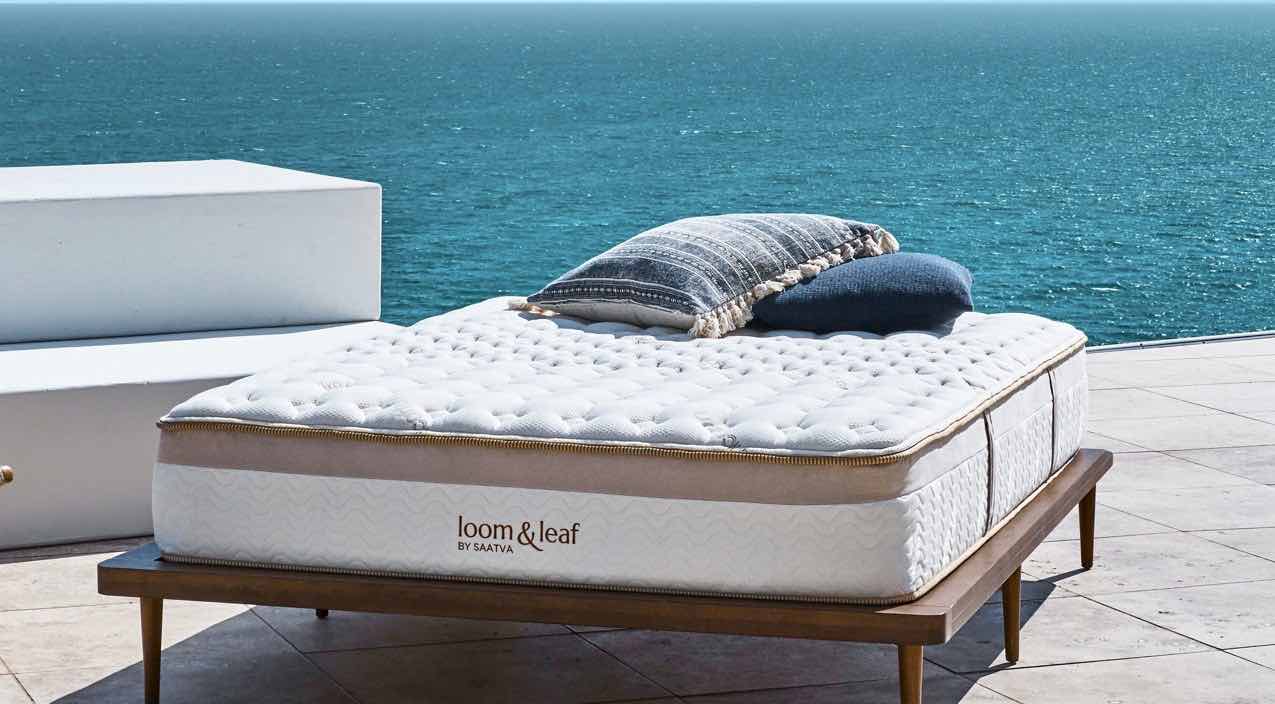
Other Furniture –
Desk –
In keeping with a minimalist theme, each client room as Milwaukee Crisis Stabilization House CSH is equipped with a suspended iron pipe and solid wood desk mounted into the wall, pictured below.
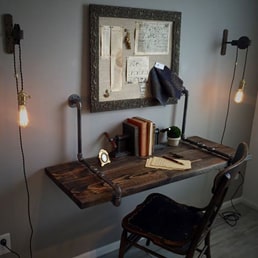
Chest of Drawers –
In keeping with a minimalist theme, each client room as Milwaukee Crisis Stabilization House CSH is equipped with a 5-drawer chest made of pine.
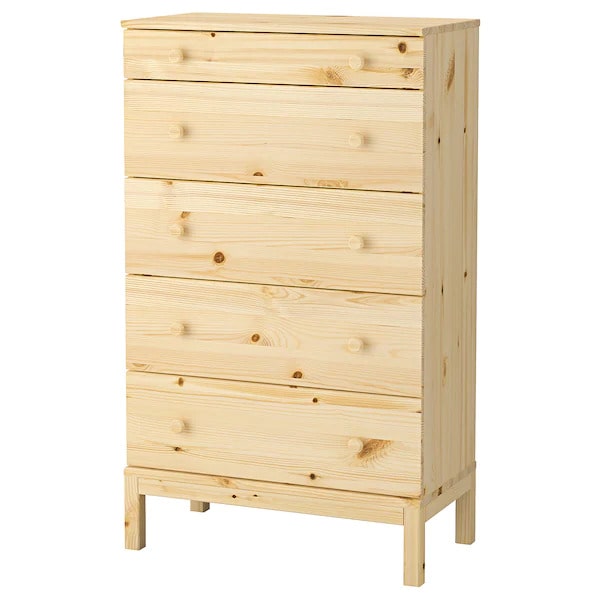
Weighted Blankets –
Weighted blankets are therapeutic blankets that weigh between 5 to 30 pounds. The pressure from the extra weight mimics a therapeutic technique called deep pressure stimulation. Deep pressure stimulation uses hands-on pressure to relax the nervous system. Doing so may help:
- Relieve pain.
- Reduce anxiety.
- Improve mood.
Deep pressure stimulation does not have to be completely hands on. With weighted blankets, the same pressure comes from having the blanket wrapped around the body.
Research shows that weighted blankets can have therapeutic benefits for persons experiencing the following mental disorders:
- Autism
- ADHD
- Anxiety
- Insomnia and sleep disorders
Source: Benefits of Using a Weighted Blanket, HEALTHLINE, accessed 4.31.2021 from https://www.healthline.com/health/anxiety/do-weighted-blankets-work#bottom-line
At Milwaukee Crisis Stabilization House CSH staff who are knowledgeable and trained use weighted blankets to provide temporary relief in appropriate cases.
